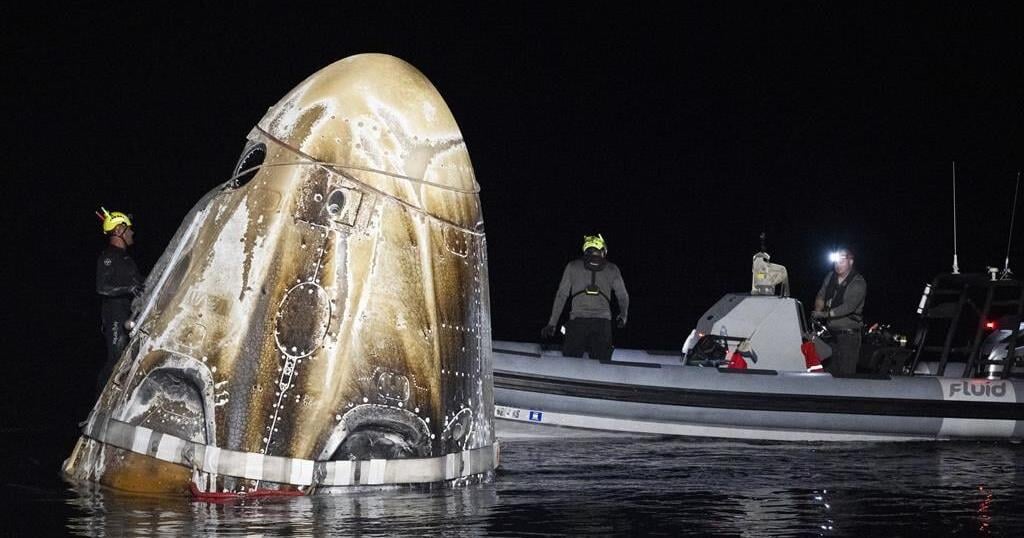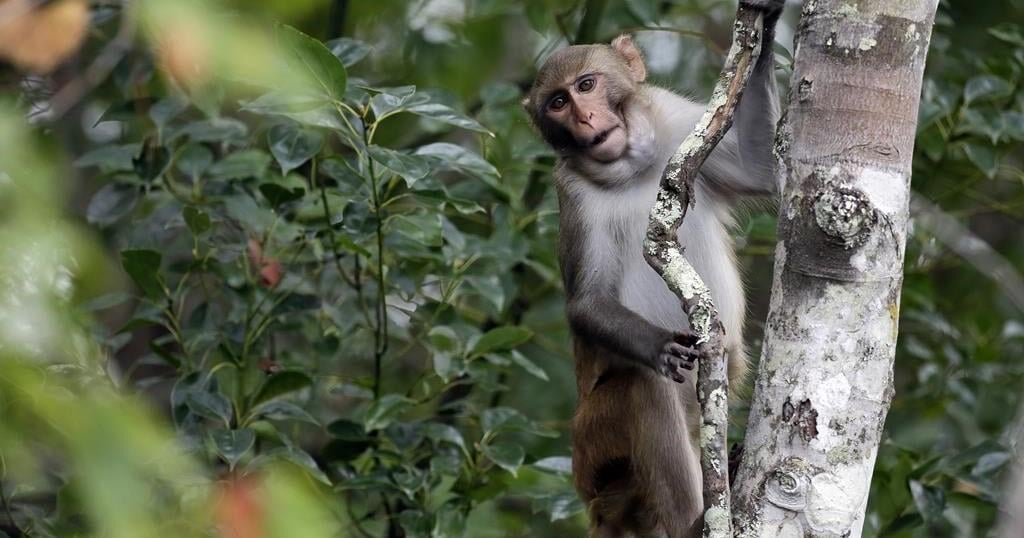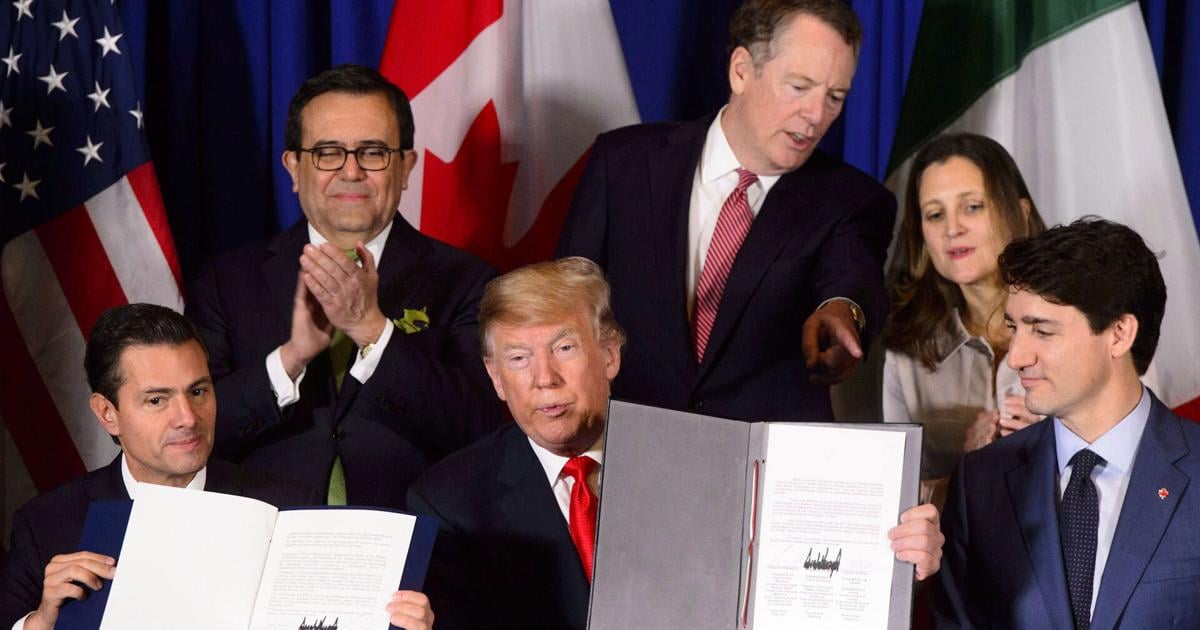OTTAWA — RCMP said Monday that it was not currently investigating political interference allegations during the SNC-Lavalin affair, after a “comprehensive and impartial” review of the matter found insufficient evidence of criminality, and despite indications provided to a Canadian democracy watchdog that an investigation was underway.
News
RCMP confirms it dropped investigation of Liberals’ SNC-Lavalin affair over lack of evidence

However, the RCMP’s Monday-evening statement said investigators dropped the matter after determining there was no evidence of criminality.
“The RCMP’s Sensitive and International Investigations unit conducted an assessment pertaining to these allegations. As part of that review the RCMP spoke with and collected information from a variety of sources, and examined the matter in the most thorough, objective and professional manner,” the RCMP wrote.
The RCMP did not respond to reporter inquiries throughout Monday from National Post after the group Democracy Watch said it had evidence that there was an investigation underway. However, the police force issued a late-afternoon statement on social media stating that it was not investigating allegations of political interference in the federal government’s handling of the political scandal — one that saw Canada’s ethics commissioner rule that Prime Minister Justin Trudeau had violated federal ethics laws by improperly pressuring Wilson-Raybould to curtail criminal prosecution against SNC-Lavalin for corruption charges.
Democracy Watch had received May 25 response to an access-to-information request filed by the group’s co-founder Duff Conacher that was partially denied by the Mounties, as the RCMP said the requested records concerned a matter “currently under investigation,” and invited him to resubmit his request once court proceedings had concluded.
“As it did in February 2021 in a letter to the RCMP, Democracy Watch again requests records with regard into all decisions made concerning the examination and any subsequent investigations that have been undertaken, and all decisions concerning prosecuting anyone involved in the situation of the allegation that Prime Minister Justin Trudeau, former finance minister Bill Morneau, some members of their staff, and former Clerk of the Privy Council Michael Wernick obstructed justice by pressing then-attorney general Jody Wilson-Raybould to stop the prosecution of SNC-Lavalin,” read Conacher’s original access-to-information request to the RCMP.
Late Monday afternoon, a message was posted on Facebook by the RCMP: “In response to numerous media reports, the RCMP can confirm it is not investigating allegations of political interference in the trial of SNC Lavalin.”
Democracy Watch responded Monday night on Twitter that the RCMP was “contradicting itself.” If the documents it had requested from the RCMP had been refused improperly, because the RCMP had claimed it was due to an investigation, which it now says it dropped, the group said they should be released now.
“(T)he RCMP should release the 86 pages they refused to disclose to DWatch because the matter was ‘currently under investigation,’” the group tweeted.
The ordeal began in February 2015 when the RCMP filed fraud and corruption charges against the Montreal-based engineering firm in connection with its business dealings in Libya.
Three years later, the Public Prosecution Service of Canada declined a request by SNC-Lavalin to negotiate a remediation agreement in connection with those charges in September 2018 — a deal that would allow the company to avoid a criminal trial in exchange for accepting responsibility for the crime, paying a fine and agreeing to an oversight regime.
Later that year, Wilson-Raybould claims the prime minister asked her to “find a solution” for SNC-Lavalin — a request that prompted the former attorney general and justice minister to ask if he was attempting to politically interfere with the matter, to which Trudeau said he wasn’t.
Despite SNC-Lavalin’s threats to cleave the company in two and divest itself of its Canadian offices and workforce, the prosecution service again denied SNC-Lavalin’s request for a remediation agreement — even after pleas from the company’s board chair to former Privy Council Clerk Michael Wernick, who told him it was up to Wilson-Raybould.
SNC-Lavalin settled the matter in December 2019 by pleading guilty to a single count of fraud, accepting a $280-million fine to be paid over five years, and three years’ probation.
As RCMP investigators began to look into the matter throughout the summer of 2019, The Globe and Mail reported that, in September, investigators’ efforts were being hindered by the federal government’s refusal to lift cabinet confidentiality. The story was reported one day before Parliament was dissolved ahead of that fall’s federal election.
An RCMP source told the newspaper at the time that investigators were looking into launching an obstruction of justice investigation.
In response, Liberal House Leader Mark Holland stood and delivered a brief answer that wasn’t picked up by the House of Commons microphones, a response so brief that even Speaker Anthony Rota remarked he didn’t catch it.
Monday morning, Conservative Ethics Critic Michael Barrett tweeted that the prime minister needed to cooperate in the investigation.
“Interfering in a criminal prosecution is an incredibly serious offence that deserves to be investigated with the full scope and weight of Canada’s national police force,” he posted on Twitter.
— With additional reporting from The Canadian Press

News
NASA astronauts won’t say which one of them got sick after almost eight months in space

CAPE CANAVERAL, Fla. (AP) — Three NASA astronauts whose prolonged space station mission ended with a trip to the hospital last month declined to say Friday which one of them was sick.
Astronauts Matthew Dominick, Michael Barratt and Jeanette Epps publicly discussed their spaceflight for the first time since returning from the International Space Station on Oct. 25. They spent nearly eight months in orbit, longer than expected because of all the trouble with Boeing’s Starliner crew capsule and rough weather, including Hurricane Milton.
Soon after their SpaceX capsule splashed down in the Gulf of Mexico off the Florida coast, the three were taken to a hospital in nearby Pensacola along with Russian cosmonaut Alexander Grebenkin, who launched with them back in March.
One of the Americans ended up spending the night there for an undisclosed “medical issue.” NASA declined to say who was hospitalized or why, citing medical privacy.
When asked at Friday’s news conference which one had been sick, the astronauts refused to comment. Barratt, a doctor who specializes in space medicine, declined to even describe the symptoms that the unidentified astronaut had.
“Spaceflight is still something we don’t fully understand. We’re finding things that we don’t expect sometimes. This was one of those times and we’re still piecing things together on this,” said Barratt, the only member of the crew who had flown in space before.
Epps said everyone is different in how they respond to space — and gravity.
“That’s the part that you can’t predict,” she said, adding, “Every day is better than the day before.”
Dominick said little things like sitting comfortably in a hard chair took several days to get used to once he returned. He said he didn’t use the treadmill at all during his time in space, as part of an experiment to see what equipment might be pared on a long trip to Mars. The first time he walked was when he got out of the capsule.
The two astronauts who served as test pilots for Boeing’s Starliner — Butch Wilmore and Suni Williams — will remain at the space station until February, flying back with SpaceX. Starliner returned empty in September.
___
The Associated Press Health and Science Department receives support from the Howard Hughes Medical Institute’s Science and Educational Media Group. The AP is solely responsible for all content.
The Canadian Press. All rights reserved.
News
43 monkeys remain on the run from South Carolina lab. CEO thinks they’re having an adventure

COLUMBIA, S.C. (AP) — Forty-three monkeys bred for medical research that escaped a compound in South Carolina have been spotted in the woods near the site and workers are using food to try to recapture them, authorities said Friday.
The Rhesus macaques made a break for it Wednesday after an employee at the Alpha Genesis facility in Yemassee didn’t fully lock a door as she fed and checked on them, officials said.
“They are very social monkeys and they travel in groups, so when the first couple go out the door the others tend to just follow right along,” Alpha Genesis CEO Greg Westergaard told CBS News.
Westergaard said his main goal is to have the monkeys returned safely with no other problems. “I think they are having an adventure,” he said.
The monkeys on Friday were exploring the outer fence of the Alpha Genesis compound and are cooing at the monkeys inside, police said in a statement.
“The primates are exhibiting calm and playful behavior, which is a positive indication,” the police statement said, adding company workers are closely watching the monkeys while keeping their distance as they work to safely recapture them.
The monkeys are about the size of a cat. They are all females weighing about 7 pounds (3 kilograms).
Alpha Genesis, federal health officials and police all said the monkeys pose no risk to public health. The facility breeds the monkeys to sell to medical and other researchers.
“They are not infected with any disease whatsoever. They are harmless and a little skittish,” Yemassee Police Chief Gregory Alexander said Thursday.
Authorities still recommend that people who live near the compound about 1 mile (1.6 kilometers) from downtown Yemassee shut their windows and doors and call 911 if they see the monkeys. Approaching them could make them more skittish and harder to capture, officials said.
Eve Cooper, a biology professor at the University of Colorado Boulder who has studied rhesus macaques, said the animals have the potential to be dangerous and urged people to keep their distance.
Rhesus macaques monkeys can be aggressive. And some carry the herpes B virus, which can be fatal to humans, Cooper said.
However, Alpha Genesis states on its website that it specializes in pathogen-free primates. Cooper noted that there are pathogen-free populations of rhesus macaques that have been quarantined and tested.
“I would give them a wide berth,” Cooper said. “They’re unpredictable animals. And they can behave quite aggressively when they’re afraid.”
Alpha Genesis provides primates for research worldwide at its compound about 50 miles (80 kilometers) northeast of Savannah, Georgia, according to its website.
Locally, it is known as “the monkey farm.” And there is more amusement than panic around Yemassee and its population of about 1,100 just off Interstate 95 about 2 miles from Auldbrass Plantation, a Frank Lloyd Wright house designed in the 1930s.
There have been escapes before, but the monkeys haven’t caused problems, said William McCoy, who owns Lowcountry Horology, a clock and watch repair shop.
“They normally come home because that’s where the food is,” he said.
McCoy has lived in Yemassee for about two years and while he plans to stay away from the monkeys, he has his own light-hearted plan to get them back.
“I’m stocking up bananas, maybe they’ll show up,” McCoy said.
The Alpha Genesis compound is regularly inspected by federal officials.
In 2018, the U.S. Department of Agriculture fined Alpha Genesis $12,600 in part after officials said 26 primates escaped from the Yemassee facility in 2014 and an additional 19 got out in 2016.
The company’s fine was also issued because of individual monkey escapes as well as the killing of one monkey by others when it was placed in the wrong social group, according to a report from the USDA.
The group Stop Animal Exploitation Now sent a letter Thursday to the USDA asking the agency to immediately send an inspector to the Alpha Genesis facility, conduct a thorough investigation and treat them as a repeated violator. The group was involved in the 2018 fine against the company.
“The clear carelessness which allowed these 40 monkeys to escape endangered not only the safety of the animals, but also put the residents of South Carolina at risk,” wrote Michael Budkie, executive director of the group.
The USDA, which has inspected the compound 10 times since 2020, didn’t immediately respond to the letter.
The facility’s most recent federal inspection in May showed there were about 6,700 primates on site and no issues.
In a 2022 review, federal veterinarians reported two animals died when their fingers were trapped in structures and they were exposed to harsh weather. They also found cages weren’t adequately secure. Inspectors said criminal charges, civil penalties or other sanctions could follow if the problems weren’t fixed.
Since then, Alpha Genesis has undergone six inspections with minor problems reported only once.
In January 2023, the USDA said temperatures were out of the 45 to 85 degree Fahrenheit (7.2 to 29.5 degree Celsius) required range at some of the compound’s monkey cages. The inspection found moldy food in one bin, sharp edges on a gate that could cut an animal and sludge, food waste, used medical supplies, mechanical equipment, and general construction debris on the grounds.
Supporters of medical research involving nonhuman primates said they are critical to lifesaving medical advances like creating vaccines against COVID-19 because of their similarities to people. Keeping a domestic supply of the animals is critical to prevent shortages for U.S. researchers.
Humans have been using the rhesus macaque for scientific research since the late 1800s. Scientists believe that rhesus macaques and humans split from a common ancestor about 25 million years ago and share about 93% of the same DNA.
These monkeys have been launched into space on V2 rockets, used for AIDS research, had their genome mapped and made stars of their own reality television show. They were in such high demand in the early 2000s that a shortage led to scientists paying up to $10,000 per animal.
Outside of rats and mice, rhesus macaques are one of the most studied animals on the planet, said Dario Maestripieri, a behavioral scientist at the University of Chicago who wrote the 2007 book “Macachiavellian Intelligence: How Rhesus Macaques and Humans Have Conquered the World.”
The animals are very family oriented, siding with relatives when fights break out. And they’re adept at building political alliances in the face of threats from other monkeys. But they can be painful to watch. Monkeys with lower status in the hierarchy live in a constant state of fear and intimidation, Maestripieri said.
“In some ways, they kind of represent some of the worst aspects of human nature,” Maestripieri said.
___
Lovan reported from Louisville, Kentucky, and Finley reported from Norfolk, Virginia.
News
Freeland says she’s ready to deal with Trump |

Finance Minister Chrystia Freeland speaks with reporters after chairing a special cabinet committee working on Canada’s plan to deal with the incoming Donald Trump administration. Freeland says she’s stood up for Canadian interests in the past and is ready to go another round. (Nov. 8, 2024)
-

 News12 hours ago
News12 hours agoFreeland says she’s ready to deal with Trump |
-

 Business23 hours ago
Business23 hours agoTelus prioritizing ‘most important customers,’ avoiding ‘unprofitable’ offers: CFO
-

 News12 hours ago
News12 hours agoNASA astronauts won’t say which one of them got sick after almost eight months in space
-

 News23 hours ago
News23 hours agoWho will buy Infowars? Both supporters and opponents of Alex Jones interested in bankruptcy auction
-

 News12 hours ago
News12 hours ago43 monkeys remain on the run from South Carolina lab. CEO thinks they’re having an adventure
-

 Politics21 hours ago
Politics21 hours ago‘Disgraceful:’ N.S. Tory leader slams school’s request that military remove uniform
-

 News23 hours ago
News23 hours ago‘Big frustration’: How a limited MAID window affects Alzheimer’s patients
-

 Politics23 hours ago
Politics23 hours agoSaskatchewan NDP’s Beck holds first caucus meeting after election, outlines plans


















